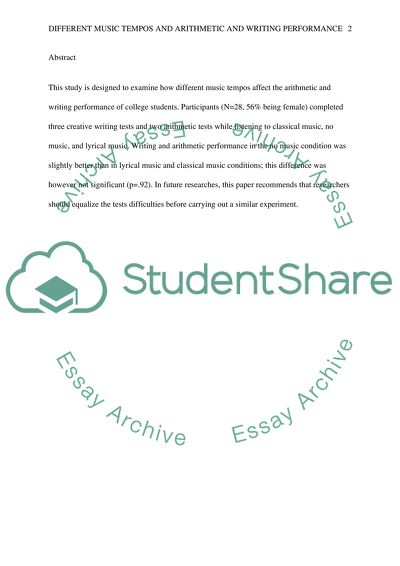Cite this document
(“Does different music tempos affect the arithmetic and writing Research Proposal”, n.d.)
Does different music tempos affect the arithmetic and writing Research Proposal. Retrieved from https://studentshare.org/psychology/1643209-does-different-music-tempos-affect-the-arithmetic-and-writing-performance-of-college-students
Does different music tempos affect the arithmetic and writing Research Proposal. Retrieved from https://studentshare.org/psychology/1643209-does-different-music-tempos-affect-the-arithmetic-and-writing-performance-of-college-students
(Does Different Music Tempos Affect the Arithmetic and Writing Research Proposal)
Does Different Music Tempos Affect the Arithmetic and Writing Research Proposal. https://studentshare.org/psychology/1643209-does-different-music-tempos-affect-the-arithmetic-and-writing-performance-of-college-students.
Does Different Music Tempos Affect the Arithmetic and Writing Research Proposal. https://studentshare.org/psychology/1643209-does-different-music-tempos-affect-the-arithmetic-and-writing-performance-of-college-students.
“Does Different Music Tempos Affect the Arithmetic and Writing Research Proposal”, n.d. https://studentshare.org/psychology/1643209-does-different-music-tempos-affect-the-arithmetic-and-writing-performance-of-college-students.


